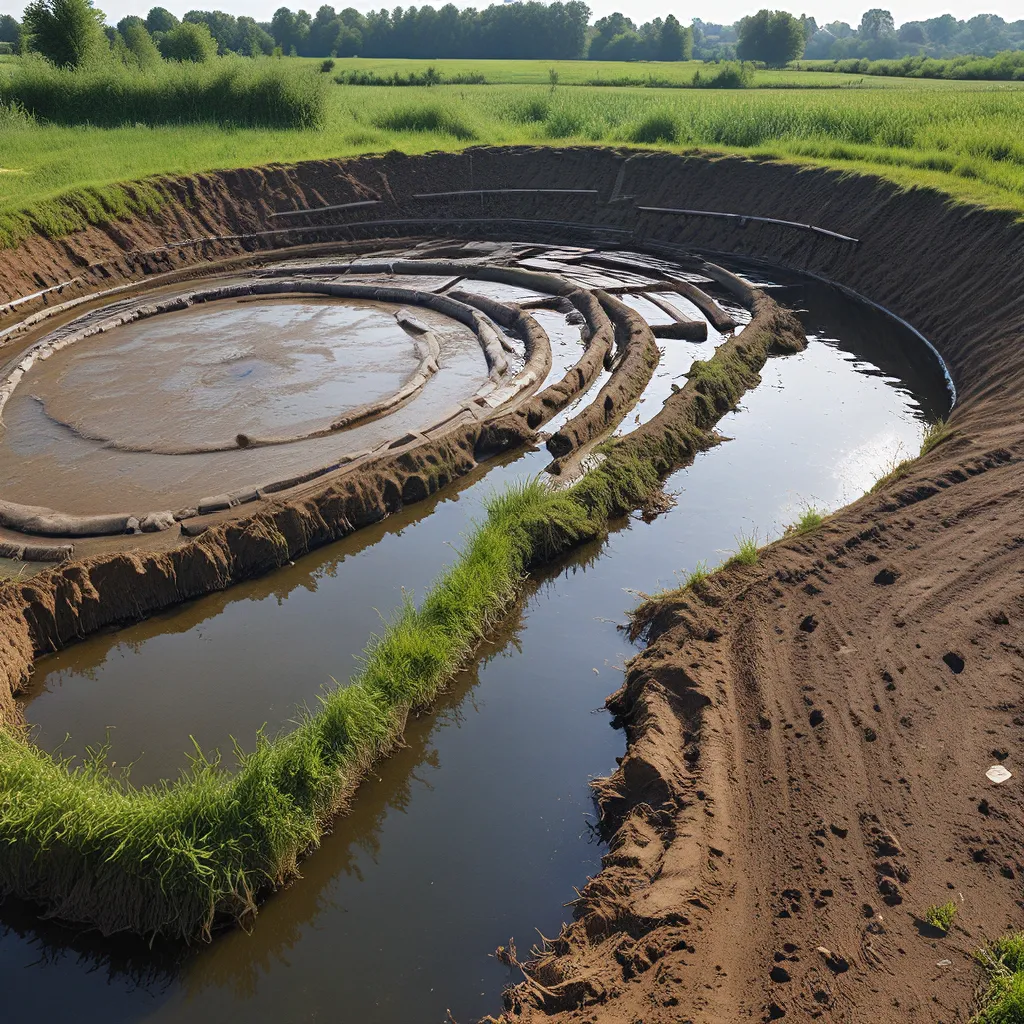
As someone who’s always been fascinated by the natural world and our role in it, I’ve been closely following the rapid advancements in the circular bioeconomy. And let me tell you, the future of wastewater treatment is looking brighter than ever before.
Unlocking the Potential of Organic Waste
You know, it’s quite remarkable when you think about it – the very materials we often consider “waste” are actually teeming with untapped potential. These organic waste streams, from agricultural byproducts to municipal sewage, are brimming with valuable bioproducts and bioenergy just waiting to be harnessed.
What if I told you that we could not only treat our wastewater more effectively, but also turn it into a valuable resource? That’s exactly what the circular bioeconomy is all about. By adopting innovative biotechnology and bioprocessing approaches, we can extract all sorts of useful materials and energy from these seemingly mundane waste streams.
The Rise of Biorefining
Think of a traditional oil refinery, but instead of crude oil, we’re using organic waste as the feedstock. This process, known as biorefining, is at the heart of the circular bioeconomy. Through a series of biological, chemical, and physical processes, we can separate and convert these waste materials into a diverse array of biobased products and biofuels.
Recent research has shown that biorefining can yield a wide range of valuable outputs, from biopolymers and bioplastics to biofertilizers and biogas. And the best part? These biobased alternatives are often more sustainable and environmentally friendly than their fossil-fuel-based counterparts.
Wastewater Treatment with a Twist
But wait, there’s more! Wastewater treatment facilities are no longer just places where we clean and purify water. They’re transforming into integrated biorefineries, where the entire process is designed to extract maximum value from the organic matter present in the wastewater.
Cutting-edge research is exploring ways to recover nutrients, generate bioenergy, and produce high-value bioproducts – all while effectively treating the wastewater. It’s a true win-win scenario, where we’re not only cleaning our water but also creating a more sustainable and circular economy.
The Bioeconomy in Action
Let me give you a few examples of how this is playing out in the real world. Take Alpha Wastewater, a leading provider of wastewater treatment services. They’ve implemented anaerobic digestion systems that convert the organic matter in wastewater into biogas, which they then use to generate renewable electricity and heat for their facilities.
But that’s just the beginning. Alpha Wastewater is also extracting and purifying valuable nutrients like nitrogen and phosphorus, which they then sell as biobased fertilizers to local farmers. It’s a remarkable example of how wastewater treatment can be transformed into a revenue-generating and environmentally responsible operation.
Bioproducts Galore
And the list of bioproducts goes on. Bioplastics made from wastewater-derived polyhydroxyalkanoates (PHAs) are gaining traction as a more sustainable alternative to traditional plastics. Biohydrogen and biobutanol are being explored as clean biofuels that can power our vehicles and industries.
Innovative research is even looking into the production of high-value specialty chemicals, like biosurfactants and bioemulsifiers, from the organic matter in wastewater. The possibilities are truly endless, and the potential for creating a circular, waste-free economy is becoming more and more tangible.
The Future of Wastewater Treatment
As we continue to delve deeper into the circular bioeconomy, I can’t help but feel excited about the future of wastewater treatment. We’re no longer just focused on cleaning and discharging water; we’re transforming wastewater into a valuable resource that can power our industries, nourish our soils, and contribute to a more sustainable future.
Of course, there are still challenges to overcome, and the road ahead may not be entirely smooth. But with the rapid advancements in biotechnology, bioprocessing, and integrated biorefineries, I’m confident that we’re on the cusp of a revolution in wastewater treatment and the circular bioeconomy.
So, what are you waiting for? Come along with me on this exciting journey as we explore the untapped potential of our organic waste streams and reimagine the future of wastewater treatment. The possibilities are endless, and the rewards are truly remarkable.